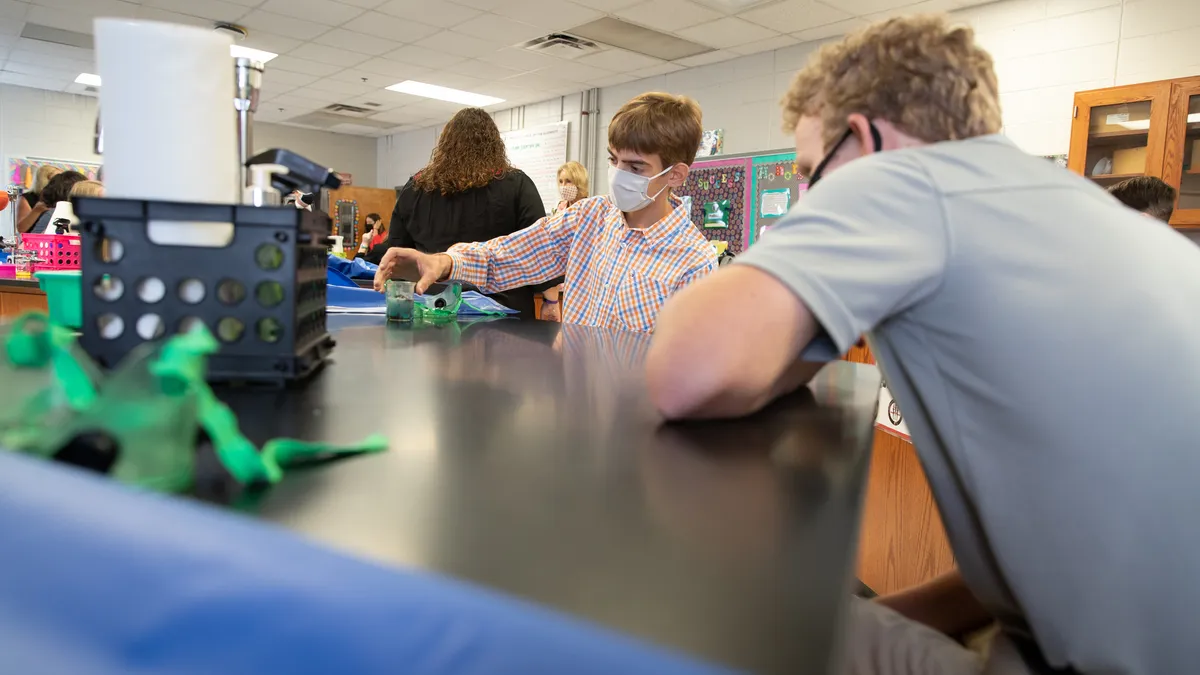Dive Brief:
-
In separate documents released Monday, the U.S. Department of Education reminded schools of their obligations to special education services and civil rights laws regardless of whether students are learning in-person or remotely.
-
Guidance from the Office of Civil Rights (OCR) said that although schools should make every effort for in-person learning opportunities, they cannot prioritize reopening plans for groups of students based on their race, national origin or color. The department, however, said schools may be required to provide in-person instruction for students with disabilities based on their individual needs.
-
The guidance documents — issued about a month after the 2020-21 school year began — are in response to questions from the education community and to add clarity to existing law or policy, according to the department.
Dive Insight:
In explaining why schools cannot phase-in in-person learning options based on a student’s "race, color or national origin," OCR said such preferences would violate Title VI of the Civil Rights Act of 1964. However, schools may be required under Section 504 of the Rehabilitation Act of 1973 to provide in-person services to certain students with disabilities so those students can receive a “free appropriate public education.”
The nine-page Q&A document also emphasized that schools must still accept harassment complaints and investigate the allegations under the new Title IX rule, which went into effect Aug. 14 even if schools are only offering distance learning. Schools are not allowed to have blanket policies that prohibit new complaints from being submitted and accepted or to pause investigations and proceedings.
“Schools should make a good-faith effort — and document the steps the school took — to respond to reports of sexual harassment while also taking into consideration the health, safety, and well-being of all their students and staff,” the guidance states.
Selene Almazan, legal director for the Council of Parent Attorneys and Advocates Inc., said she is pleased OCR issued the Q&A, particularly the section that warns states and districts that they cannot limit services to students with disabilities without consideration of their individual needs.
“We’re six months into this [pandemic] and we do know that students with disabilities are disproportionately affected by distance learning,” Almazan said.
The other guidance is a seven-page Q&A from the department’s Office of Special Education and Rehabilitative Services (OSERS). That document stresses that state education agencies, school districts and individual education program teams are still responsible under the Individuals with Disabilities Education Act for providing FAPE to all students with disabilities no matter what instructional approach is provided.
Those requirements include having an appropriate IEP for each qualified student at the start of the school year. IEP teams may need to determine if revisions to the service plan are necessary. A district could also amend the IEP as long as it doesn’t replace the annual IEP meeting and parents are provided with notification of their rights regarding the changes, the document said.
Phyllis Wolfram, executive director of the Council of Administrators of Special Education, said in an email to Education Dive that the council is grateful for the Q&A addressing IDEA Part B service provisions. “It is a reiteration of the regulatory requirements that special education administrators and leaders across the nation are very familiar,” Wolfram wrote. “Given the strong emphasis on FAPE in the Q&A, I think it is particularly important to include a reminder from [the Office of Special Education Program’s] March 21, 2020 Supplemental Guidance that states, ‘The determination of how FAPE is to be provided may need to be different in this time of unprecedented national emergency.’”













